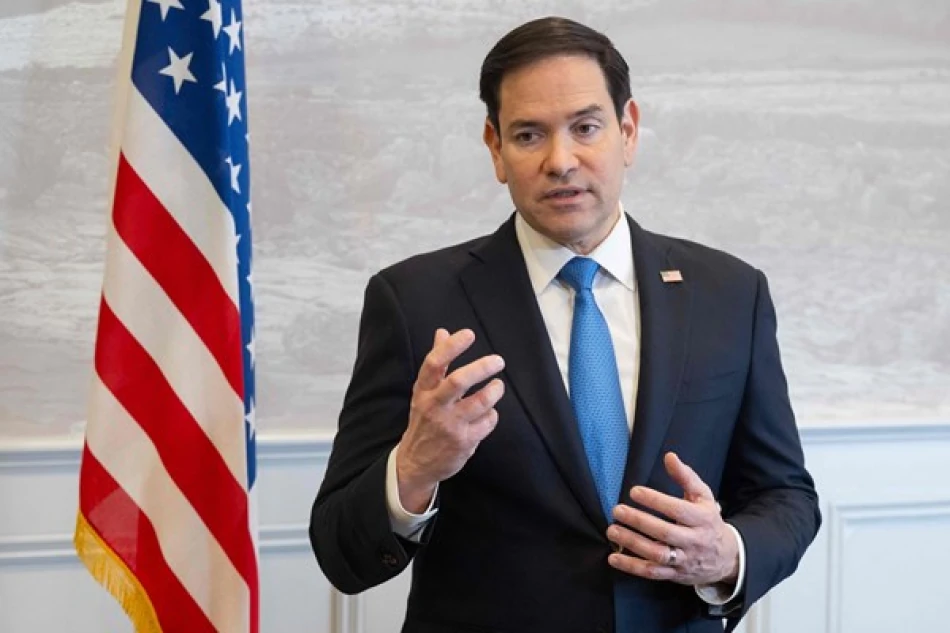
Cambodia and Thailand Hold Talks in Malaysia, Washington Backs Peace Efforts
Trump's Trade Threats Push Thailand and Cambodia to Peace Table as Border Conflict Claims Over 30 Lives
The United States is deploying diplomatic pressure and trade leverage to halt a deadly border conflict between Thailand and Cambodia that has killed more than 30 people and displaced over 200,000 civilians. Secretary of State Marco Rubio confirmed U.S. officials are on the ground in Malaysia as the two Southeast Asian nations begin crucial ceasefire negotiations, with President Trump threatening to withhold trade agreements unless the fighting stops.
Escalating Border Violence Forces International Intervention
The conflict has rapidly intensified, with both sides exchanging accusations of launching new artillery attacks across disputed border territories. The death toll has climbed to over 30 casualties, including 13 Thai civilians and eight Cambodian civilians, while authorities report evacuating more than 200,000 people from border areas.
The violence represents a significant escalation in long-standing territorial disputes between the two nations, forcing emergency diplomatic intervention from regional powers and the United States.
Trump Administration Links Trade to Peace
In an unusually direct approach to conflict resolution, President Trump has explicitly connected economic incentives to peace negotiations. The president informed both Thai and Cambodian leaders that the United States will not finalize trade agreements with either nation unless they end the fighting.
Secretary of State Rubio emphasized the administration's commitment to rapid conflict resolution, stating that both he and Trump are maintaining direct communication with counterparts in each country while closely monitoring developments.
Economic Leverage as Diplomatic Tool
This strategy reflects the Trump administration's preference for using economic pressure to achieve foreign policy objectives. For Thailand and Cambodia, both heavily dependent on international trade and investment, the threat of suspended U.S. trade deals represents significant economic consequences that could extend far beyond the immediate border dispute.
Historical Context of Thai-Cambodian Border Tensions
Border disputes between Thailand and Cambodia have persisted for decades, often centering on ancient temple sites and unclear colonial-era boundary demarcations. Previous conflicts have typically involved smaller-scale skirmishes, making the current casualty levels and civilian displacement particularly concerning for regional stability.
The involvement of heavy artillery and the scale of civilian evacuations suggest this conflict has escalated beyond typical border incidents, potentially threatening broader Southeast Asian security arrangements.
Regional Implications and Market Impact
The conflict threatens to destabilize one of Asia's key economic corridors, with both Thailand and Cambodia serving as important manufacturing and agricultural exporters. Prolonged fighting could disrupt supply chains, particularly in textiles, electronics, and food products that flow through border regions.
For investors, the situation highlights ongoing political risks in emerging Southeast Asian markets, where territorial disputes can quickly escalate into economic disruption. The U.S. trade threat adds another layer of uncertainty for companies operating in both countries.
Malaysia's Mediation Role
Malaysia's selection as the mediation venue reflects its position as a relatively neutral ASEAN member with strong diplomatic ties to both parties. The country has successfully mediated regional disputes before, though none involving this level of violence and civilian displacement.
The presence of U.S. officials alongside Malaysian mediators signals international recognition that the conflict requires immediate resolution before it further destabilizes regional security arrangements and economic partnerships.
Most Viewed News

 Layla Al Mansoori
Layla Al Mansoori






